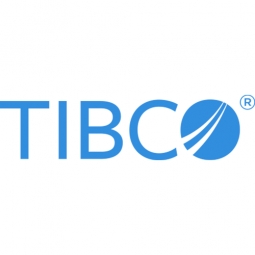下载PDF
R. Lacy Turns a Down Market into Opportunity
技术
- 分析与建模 - 预测分析
- 分析与建模 - 实时分析
- 功能应用 - 远程监控系统
适用行业
- 石油和天然气
适用功能
- 商业运营
- 质量保证
用例
- 预测性维护
- 资产健康管理 (AHM)
- 过程控制与优化
服务
- 系统集成
- 数据科学服务
- 软件设计与工程服务
挑战
Recently, the oil and gas industry has experienced a sharp decline in prices, putting a strain on cash flows and project economics. R. Lacy Services saw this as an opportunity to acquire oil and gas assets at lower evaluations. However, the company faced challenges with inefficient data capture and data stored in multiple sources, which hindered their ability to make informed decisions. The goal was to provide decision-makers with 24/7 access to data to improve profitability and identify high-quality acquisition candidates.
关于客户
R. Lacy is an independent oil and gas exploration and production company with core operations in east Texas. The company is known for being an efficient, low-cost operator and aims to leverage its talents to find high-quality acquisition candidates. R. Lacy focuses on making better business decisions in developing its own assets and acquiring new oil and gas properties. The company aims to provide decision-makers with granular data access to improve profitability and operational efficiency.
解决方案
R. Lacy implemented TIBCO Spotfire, a data analytics platform, to achieve its objectives. The engineering department uses Spotfire to access the data needed to maximize assets and improve overall profitability. The platform is intuitive and flexible, allowing the company to build analytics dashboards on the fly. TIBCO Professional Services were also leveraged for custom solutions and to integrate decline curve analysis into their processes. This integration helped predict future well production and identify production problems, improving the efficiency of reserves analysis.
运营影响
相关案例.

Case Study
Taking Oil and Gas Exploration to the Next Level
DownUnder GeoSolutions (DUG) wanted to increase computing performance by 5 to 10 times to improve seismic processing. The solution must build on current architecture software investments without sacrificing existing software and scale computing without scaling IT infrastructure costs.

Case Study
Remote Wellhead Monitoring
Each wellhead was equipped with various sensors and meters that needed to be monitored and controlled from a central HMI, often miles away from the assets in the field. Redundant solar and wind generators were installed at each wellhead to support the electrical needs of the pumpstations, temperature meters, cameras, and cellular modules. In addition to asset management and remote control capabilities, data logging for remote surveillance and alarm notifications was a key demand from the customer. Terra Ferma’s solution needed to be power efficient, reliable, and capable of supporting high-bandwidth data-feeds. They needed a multi-link cellular connection to a central server that sustained reliable and redundant monitoring and control of flow meters, temperature sensors, power supply, and event-logging; including video and image files. This open-standard network needed to interface with the existing SCADA and proprietary network management software.

Case Study
Refinery Saves Over $700,000 with Smart Wireless
One of the largest petroleum refineries in the world is equipped to refine various types of crude oil and manufacture various grades of fuel from motor gasoline to Aviation Turbine Fuel. Due to wear and tear, eight hydrogen valves in each refinery were leaking, and each cost $1800 per ton of hydrogen vented. The plant also had leakage on nearly 30 flare control hydrocarbon valves. The refinery wanted a continuous, online monitoring system that could catch leaks early, minimize hydrogen and hydrocarbon production losses, and improve safety for maintenance.








